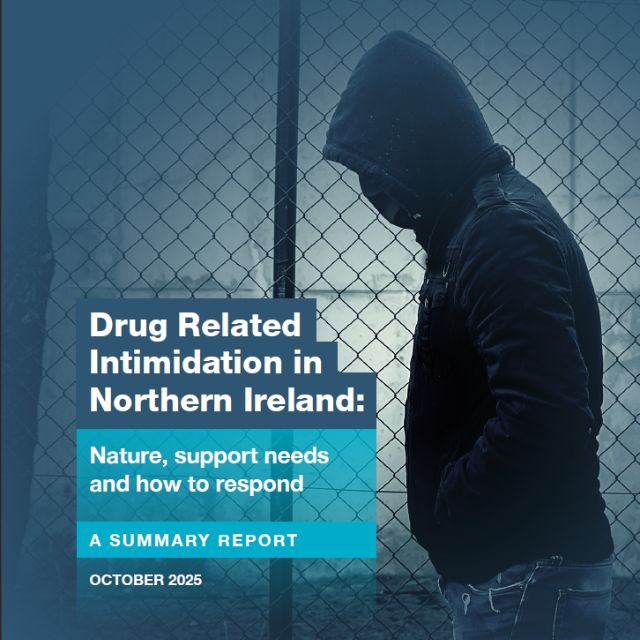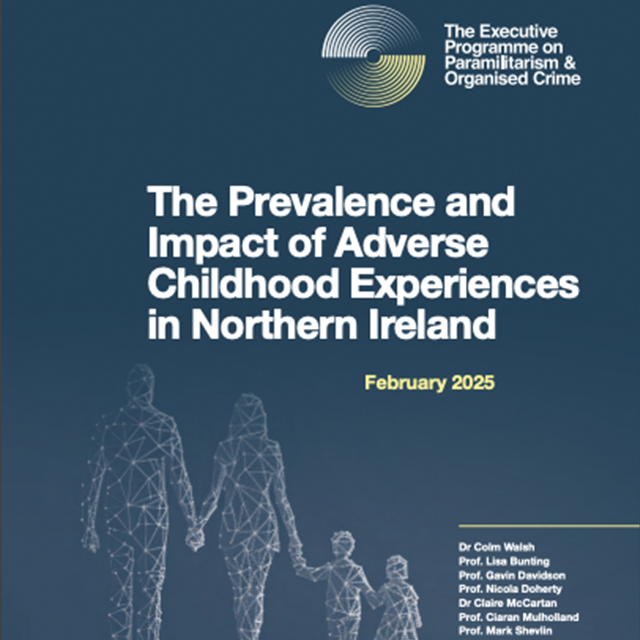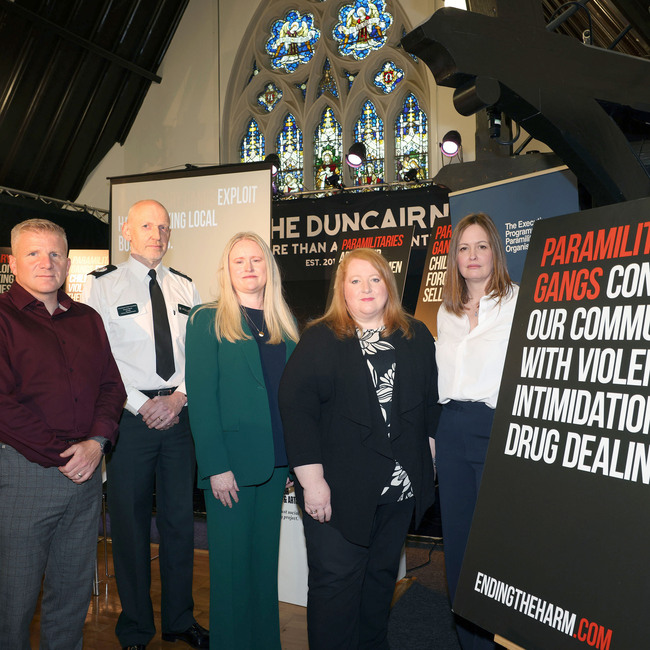
What the Programme Does
The Tackling Paramilitarism, Criminality and Organised Crime Programme is an ambitious, multi-disciplinary and transformational change programme working to deliver the NI Executive’s priority of addressing the challenging issues associated with paramilitarism in Northern Ireland.
The Programme is currently in its second phase (2021-2024). The overall aim of the Programme is to achieve safer communities, resilient to paramilitarism, criminality and coercive control. More information about the background to the Programme and Phase 1 can be found here.
In the current financial year (2022-23), the Programme is investing approximately £11.5m across nearly 80 projects. Using innovative local expertise and internationally recognised methods, projects prevent people being exploited and provide direct support or signpost people towards help. The Programme operates throughout Northern Ireland and projects vary in scale, focus, location, target group and methodology depending on an identified need.
The Programme’s projects draw on expertise, data and knowledge from lots of disciplines. Some projects prevent harm before it occurs (like a flexible education initiative to stop children being vulnerable to criminal exploitation); some aim to deal with harm immediately as it is happening – to stabilise the situation and prevent it worsening (like the multi-agency youth stream of a Support Hub to support young people who are at risk of being involved with, influenced by, or exploited by paramilitary gangs; and some projects are about reducing the long term impact of paramilitarism and organised crime (for example young men who have previously been involved in paramilitary / criminal activity).
You can find out more about the projects we are investing in this year here.
The Programme has many different measurable indicators of progress that show the impact the Programme is having over time. These are measured at project, programme and strategic level. Further information, project evaluations and research can be found here.
Projects are delivered through a network of 7 NI Civil Service (NICS) Departments, 22 statutory agencies, over 50 public sector and 180 community/voluntary sector organisations.
The Programme is funded jointly by the NI Executive and UK Government. For Phase 2 (2021-24), the Executive has committed £8m per year. The UK Government has committed c£5m per year plus £10m over three years, ring-fenced for the Executive Office-led Communities in Transition projects. Programme funding is ring-fenced.
Cross-Executive governance and scrutiny structures ensure oversight from project through to strategic level (overseen by the Head of the Civil Service). The Programme is also scrutinised externally by the The Independent Reporting Commission (IRC), created under the Fresh Start Agreement to monitor progress on tackling paramilitary activity in Northern Ireland.
We take an Executive-wide approach to tackling the issues of paramilitarism and organised crime.
Our programme values are based on the additional commitments to the Northern Ireland Ministerial Pledge of Office that were made under the Fresh Start Agreement. These are to:
- work collectively to achieve a society free of paramilitarism;
- support the rule of law unequivocally in word and deed and support all efforts to uphold it;
- challenge all paramilitary activity and associated criminality;
- call for, and work together to achieve, the disbandment of all paramilitary organisations and their structures;
- challenge paramilitary attempts to control communities; and
- support those who are determined to make the transition away from paramilitarism.
Funding provided on behalf of the Programme must be used by recipients in a manner that is consistent with and upholds these values.
Data and research are at the heart of our programme and our work is influenced and driven by knowledge and best practice. It means we can get help to where it is needed most. We draw on the knowledge of local and international experts to give us an in-depth understanding of how to support communities.
Please note, some of these do not have a direct link to the Executive Programme on Paramilitarism, Criminality and Organised Crime Programme but may be of interest, as they are both insightful and have helped to shape our overall thoughts and approaches.
To view all research, click here.
In the current financial year (2024-25), the Programme is investing approximately £14.1m across nearly 80 projects. Using innovative local expertise and internationally recognised methods, projects prevent people being exploited and provide direct support or signpost people towards help. The Programme operates throughout Northern Ireland and projects vary in scale, focus, location, target group and methodology depending on an identified need.
The Programme’s projects draw on expertise, data and knowledge from lots of disciplines. Some projects prevent harm before it occurs (like a flexible education initiative to stop children being vulnerable to criminal exploitation); some aim to deal with harm immediately as it is happening – to stabilise the situation and prevent it worsening (like the multi-agency youth stream of a Support Hub to support young people who are at risk of being involved with, influenced by, or exploited by paramilitary gangs; and some projects are about reducing the long term impact of paramilitarism and organised crime (for example young men who have previously been involved in paramilitary / criminal activity).
You can find out more about the projects we are investing in this year here.
The Programme has many different measurable indicators of progress that show the impact the Programme is having over time. These are measured at project, programme and strategic level. Further information, project evaluations and research can be found here.
Projects are delivered through a network of 7 NI Civil Service (NICS) Departments, 22 statutory agencies, over 50 public sector and 180 community/voluntary sector organisations.
The Programme is funded jointly by the NI Executive and UK Government. For Phase 2 (2021-24), the Executive has committed £8m per year. The UK Government has committed c£5m per year plus £10m over three years, ring-fenced for the Executive Office-led Communities in Transition projects. Programme funding is ring-fenced.
Cross-Executive governance and scrutiny structures ensure oversight from project through to strategic level (overseen by the Head of the Civil Service). The Programme is also scrutinised externally by the The Independent Reporting Commission (IRC), created under the Fresh Start Agreement to monitor progress on tackling paramilitary activity in Northern Ireland.
We take an Executive-wide approach to tackling the issues of paramilitarism and organised crime.
Our programme values are based on the additional commitments to the Northern Ireland Ministerial Pledge of Office that were made under the Fresh Start Agreement. These are to:
- work collectively to achieve a society free of paramilitarism;
- support the rule of law unequivocally in word and deed and support all efforts to uphold it;
- challenge all paramilitary activity and associated criminality;
- call for, and work together to achieve, the disbandment of all paramilitary organisations and their structures;
- challenge paramilitary attempts to control communities; and
- support those who are determined to make the transition away from paramilitarism.
Funding provided on behalf of the Programme must be used by recipients in a manner that is consistent with and upholds these values.
Data and research are at the heart of our programme and our work is influenced and driven by knowledge and best practice. It means we can get help to where it is needed most. We draw on the knowledge of local and international experts to give us an in-depth understanding of how to support communities.
Please note, some of these do not have a direct link to the Executive Programme on Paramilitarism, Criminality and Organised Crime Programme but may be of interest, as they are both insightful and have helped to shape our overall thoughts and approaches.
To view all research, click here.



